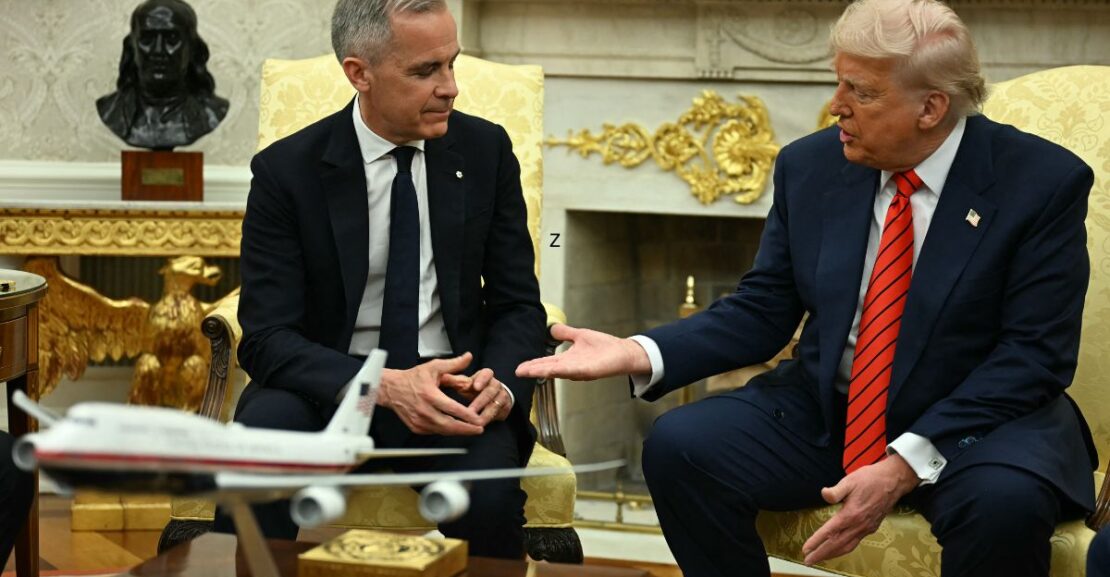Leaders of the Group of Seven (G7) nations are set to convene in the Canadian Rockies on Sunday (June 15) for a summit overshadowed by rising tensions with the United States over trade, foreign policy and the war in Ukraine, with Canadian Prime Minister Mark Carney aiming to keep the gathering from derailing.
The summit, which will take place in the mountain resort of Kananaskis, about 90 kilometers (56 miles) west of Calgary, comes amid growing frustration over US President Donald Trump’s foreign policy stance, recent tariffs, and Middle East tensions following Israeli airstrikes on Iran.
STORY CONTINUES BELOW THIS AD
Carney has said the summit’s priorities include building critical mineral supply chains, creating jobs, and reinforcing global security. But discussions are expected to be dominated by more contentious issues, including Trump’s trade policies and geopolitical crises.
Avoiding confrontation
Officials say Canada has abandoned plans for a traditional joint communique, instead opting for chair summaries to prevent potential disputes and preserve diplomatic engagement with Washington.
“This will be a successful meeting if Donald Trump doesn’t have an eruption that disrupts the entire gathering. Anything above and beyond that is gravy,” said Roland Paris, a University of Ottawa international affairs professor and former foreign policy adviser to former Prime Minister Justin Trudeau.
Trump’s 2018 appearance at the last Canadian-hosted G7 summit ended in acrimony, with the US president leaving early and later denouncing Trudeau as “very dishonest and weak.” Trump also withdrew US support for the final statement at that summit.
Canadian Senator Peter Boehm, who served as Trudeau’s personal representative to the 2018 summit, said this year’s event is scheduled to run longer to allow for extended bilateral meetings, particularly with Trump.
Trump has previously floated controversial comments about annexing Canada and arrives at a time when Carney is warning of retaliatory action if tariffs on Canadian steel and aluminum are not lifted.
Tense global backdrop
The summit comes days after Israel launched a wide-ranging missile attack on Iranian targets, challenging Trump’s attempts to prevent further escalation in the Middle East. Carney’s office declined to comment on how the development might affect the summit.
A senior US official said discussions will cover global trade, critical minerals, artificial intelligence, drug and migrant smuggling, wildfire response, and international security.
STORY CONTINUES BELOW THIS AD
“The president is eager to pursue his goals in all of these areas including making America’s trade relationships fair and reciprocal,” the official said.
Leaders from Ukraine, India, Mexico, Brazil, South Africa, South Korea and Australia are expected to attend portions of the Sunday-to-Tuesday summit. Many are expected to seek one-on-one meetings with Trump.
Ukraine’s President Volodymyr Zelenskyy, who had a contentious White House visit in February, is attending. One Ukrainian official said expectations for strong language in support of Kyiv have dimmed, and that a civil meeting with Trump would be considered a success.
Canada remains one of Ukraine’s staunchest allies, while Trump has promised to end the war with Russia swiftly, though efforts toward a negotiated solution have stalled.
A European official said both the G7 summit and the NATO summit later this month in The Hague could be used to press Trump to support a new sanctions package against Russia, developed by US senators alongside European allies.
STORY CONTINUES BELOW THIS AD
Testing international engagement
The summit is being seen as a litmus test for Trump’s willingness to work with traditional allies on global issues.
“The big overarching question here is, basically, is the United States still committed to formats like the G7? That is going to be the big test,” said Max Bergmann, a director at the Center for Strategic and International Studies.
French President Emmanuel Macron, who has had both cooperative and combative moments with Trump, said he maintains a “frank” relationship with the U.S. leader. Macron confirmed on Friday that a United Nations-backed peace conference on Israel and Palestine, co-hosted by France and Saudi Arabia and originally scheduled after the G7, has been postponed.

